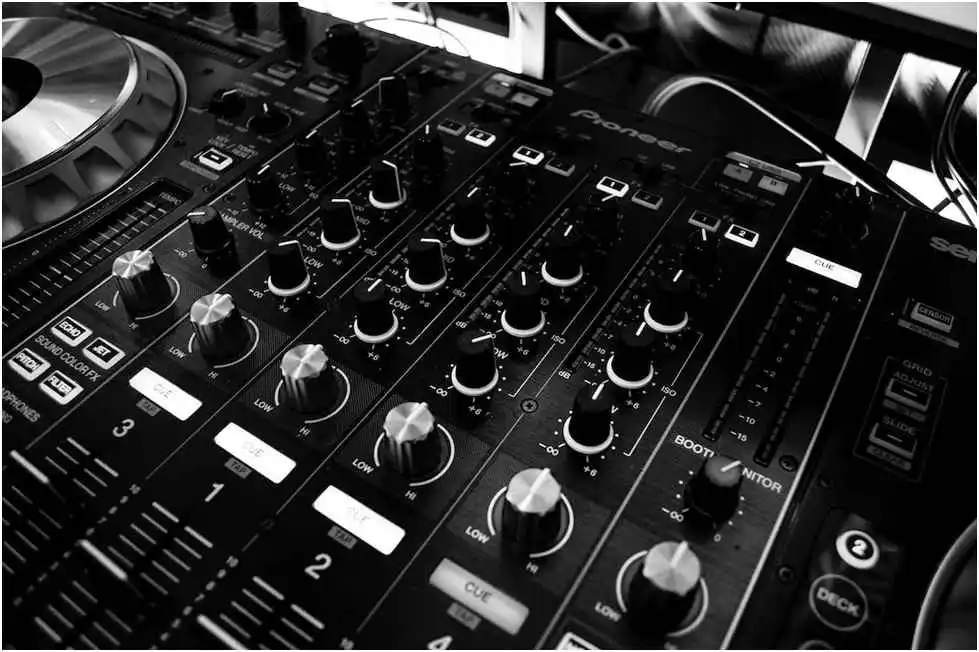Music possesses a unique ability to evoke a wide range of emotions and impact our mental well-being. Studies have shown that listening to music can have a profound effect on our mood, reducing stress and anxiety while promoting relaxation and a sense of happiness. Whether it’s the soothing melodies of classical music or the energetic beats of a favorite dance track, music has the power to lift our spirits and provide an emotional escape from the challenges of daily life.
For example, Top Canadian Casinos Music, in particular, has gained popularity for its ability to energize and invigorate listeners, making it a great choice for workouts or dance parties. Regardless of the genre or style, the Spin keyword adds an extra layer of excitement and dynamism to the music experience, enhancing the positive impact it can have on our mental and emotional well-being.

The Influence of Music on Emotions and Mental Well-being
Music possesses a unique ability to evoke a wide range of emotions and impact our mental well-being. Studies have shown that listening to music can have a profound effect on our mood, reducing stress and anxiety while promoting relaxation and a sense of happiness. Whether it’s the soothing melodies of classical music or the energetic beats of a favorite dance track, music has the power to lift our spirits and provide an emotional escape from the challenges of daily life.
Additionally, therapy has emerged as a recognized discipline that utilizes the therapeutic properties of melody to improve mental health. It has shown promising results in treating conditions such as depression, post-traumatic stress disorder (PTSD), and even aiding in the recovery process for individuals with neurological disorders. The rhythmic patterns, harmonies, and lyrical content of music can stimulate various regions of the brain, promoting healing and emotional well-being.
The Benefits of Education
Music education plays a vital role in the development of individuals, particularly children. Learning to play an instrument or engage in singing not only fosters a deeper appreciation for music but also provides a multitude of cognitive and social benefits. Research suggests that education enhances critical thinking skills, improves memory, and promotes spatial-temporal skills, which are essential for mathematical and scientific understanding.

Furthermore, participating in music ensembles or bands cultivates teamwork, cooperation, and discipline. The collaborative nature of making melody together fosters a sense of unity, encourages effective communication, and teaches individuals to value the contributions of others. Music education serves as a platform for self-expression and creativity, allowing individuals to discover their unique talents and develop a lifelong passion for the arts.
Exploring Genres
One of the most fascinating aspects of music is its incredible diversity. Across the globe, countless genres and subgenres have emerged, each with its own distinct characteristics, history, and cultural significance. Let’s explore a few notable genres:
- Classical Music: Rooted in Western traditions, classical music encompasses masterpieces composed by the likes of Mozart, Beethoven, and Bach. It is renowned for its intricate compositions, rich harmonies, and timeless appeal.
- Jazz: Originating in African American communities, jazz is a vibrant genre characterized by improvisation, syncopation, and complex rhythms. It has influenced a multitude of genres, such as swing, bebop, and fusion.
- Rock: With its roots in the 1950s, rock music has evolved into a vast genre encompassing various subgenres, including classic rock, punk rock, heavy metal, and alternative rock. It is characterized by its prominent guitar riffs, energetic performances, and rebellious spirit.
- Hip-Hop: Emerging from African American and Afro-Caribbean communities, hip-hop revolutionized the music industry with its rhythmic beats, spoken-word poetry, and social commentary. It has become a global phenomenon, shaping popular culture and influencing fashion, art, and dance.
- Electronic Music: A product of technological advancements, electronic music encompasses a broad range of genres, from ambient and house to techno and dubstep. It relies heavily on synthesizers, drum machines, and computer-based production techniques.
These are just a few examples of the diverse musical landscape, and each genre has its own passionate fan base, unique history, and evolution over time.
The Future: Technology and Innovation
As we move further into the 21st century, technology continues to reshape the industry. Digital platforms, streaming services, and social media have revolutionized how we consume and discover melody. Artists can now reach global audiences with a few clicks, and listeners have instant access to an extensive catalog of songs from around the world.
In addition, developments in production software and equipment have democratized the creative process, making it possible for aspiring artists to create high-quality tunes without having to leave the comfort of their own homes. Composition has also been influenced by the emergence of artificial intelligence and machine learning. Algorithms have been used to help in the generation of melodies and harmonies in composition.
While technology has undoubtedly brought numerous benefits, it has also raised concerns regarding copyright, fair compensation for artists, and the homogenization of melody due to algorithmic recommendations. Because continuing technological progress will unavoidably have an effect on the direction that melody will take in the future, it is of the utmost importance to find a happy medium between the benefits of ease and accessibility provided by technology and the need to protect the originality and inventiveness of the art form.
Conclusion: The Enduring Legacy of Music
Music is a powerful energy that is not constrained by time or place. It has the power to heal, to inspire, and to bring together individuals from a variety of cultural and historical backgrounds. Whether we make music, perform it, or just listen to it, it enriches our lives and moves our hearts.
Let us continue to celebrate the vast spectrum of genres, provide support for up-and-coming artists, and acknowledge the transformational power of melody in all of its incarnations as we negotiate the dynamic terrain of the music business, which is always shifting. Music, in all of its incarnations, from traditional symphonies to cutting-edge electronic works, will continue to be the medium through which we may express the most fundamental aspects of our humanity.


